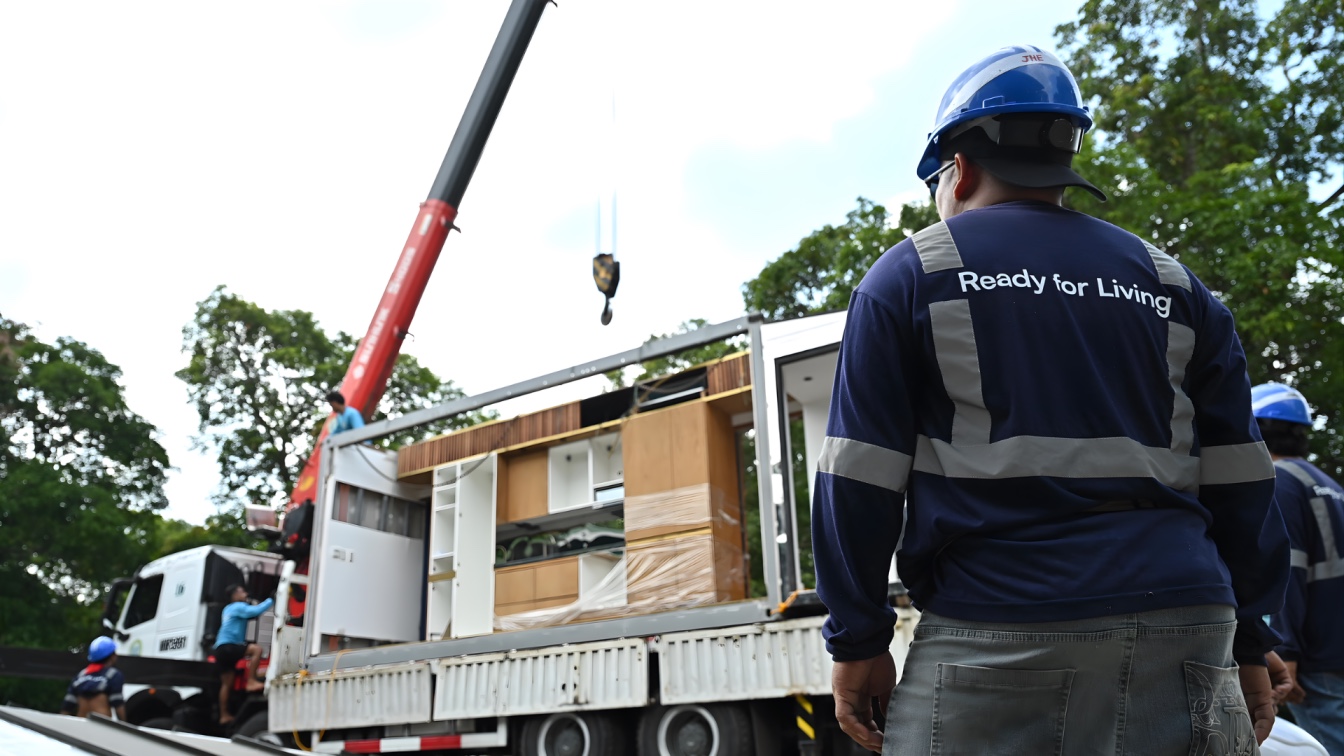Hive Modular on the Future of Building: Sustainable Innovation You Can Live In
A new McKinsey study highlights why modular construction is outperforming traditional methods worldwide. Explore how Hive Modular is using these insights to build smarter, more resilient housing in the Philippines.

Taguig City, Philippines, November 19, 2025 – In a world obsessed with artificial intelligence, I keep coming back to this fundamental truth: the most meaningful innovation opportunities are still physical. They’re found in how we build, live, and sustain the world around us, especially as demand grows for modern housing, sustainable housing, and smarter modular homes in the Philippines.
McKinsey’s new study, “Putting the Pieces Together: Unlocking Success in Modular Construction,” puts hard data behind what we’ve been doing at Hive Modular. It reinforces why modular construction, modular build strategies, and even newer prefabricated construction models are becoming essential to the future of development.
Across 700+ modular companies globally, the highest performers share a few common traits:
- Integration beats fragmentation. Companies that control both manufacturing and assembly earn far higher EBITDA margins (15-20% vs around 5% for component manufacturers).
- Systemization wins. Strong building systems with consistent rules, components, and digital integration make scalable quality possible.
- Focus matters. The best firms start with one material, one system, one market, then expand deliberately.
- Repeatability over complexity. Standardized projects consistently outperform highly bespoke ones.
- Disciplined scaling. Many failures come from building large factories before demand is proven.
At Hive, this is exactly how we’re growing. We’re focused on controlling the value chain, refining our steel-framed building system, and scaling through proven, high-value markets like hospitality where modular offers clear advantages in speed, quality, and cost control. These are the same principles guiding our modular home design efforts and our expansion into scalable modular housing design options for different markets. We’re also one of the few AEC firms in the Philippines that use building information management (BIM) tools in 100% of our projects. We “build” things digitally in 3D before we start production, much like an automotive or aerospace manufacturing company, meaning our products are fabricated with precision and speed not found in traditional construction, whether for compact modular units or larger developments built through prefab systems.
Ours is an approach rooted in the same forces that drive every major wave of innovation: doing things better, faster, and more intelligently than before. Which is why this week’s The Nobel Prize in Economics announcement felt so relevant. Joel Mokyr, Philippe Aghion, and Peter Howitt were recognized for their work on innovation, growth, and creative destruction—the process where new technologies and business models replace outdated ones and drive progress and economic development.
That’s what we’re seeing in real time. Traditional construction around the world (including in the #Philippines) is struggling with rising costs, labor shortages, and inefficiency. Modular homes, modular construction, and other advanced systems aren’t passing trends. It’s a structural shift toward a faster, smarter, more sustainable way of building. While much of the world is coding the future, we’re focused on building it. And in the process, creating real manufacturing jobs that are skilled, sustainable, and resilient to the volatility of technological change. For investors and developers who want to back tangible innovation, the kind that shapes cities, industries, and livelihoods, modular is one of the most exciting opportunities of our time.
Let’s keep building. 🐝
Written by John Avrett.
CEO and Founder of Hive Modular.
